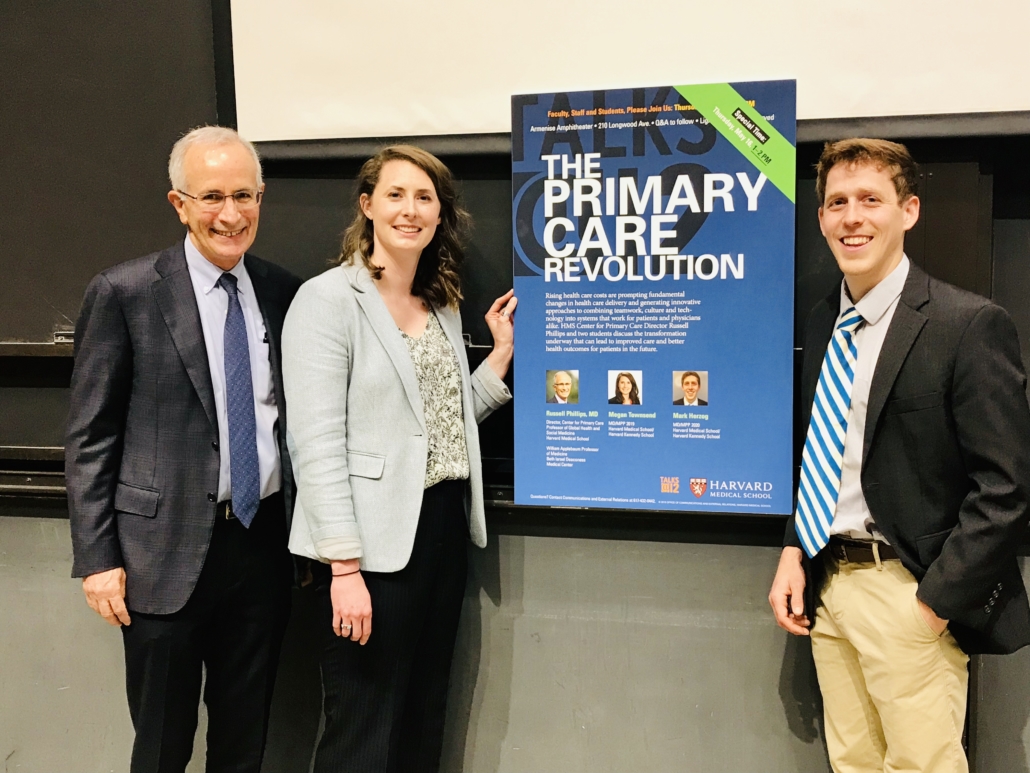Special Features
Rocky Mountain High-Performance Integrated Care
In the Rocky Mountain states of Utah, Idaho and Nevada, there has emerged a sterling example of how a forward-looking, nonprofit, large healthcare system can provide high-quality integrated medical and behavioral health services. Intermountain Health (IH) has transformed its primary care from a traditional PC approach into an integrated, team-based model. IH’s integrated team-based approach provides identification, treatment and management of both chronic physical and mental health concerns, resulting in improved quality of care, patient satisfaction, and cost outcomes.
Intermountain Healthcare (IH) is a fully integrated health care delivery system that for the past 20 years has produced high-performing patient outcomes (e.g. health-related quality of life; functionality; access to care; patient satisfaction; clinical symptoms) and at lower cost. IH delivers integrated med/psych care to its patients through a data-driven culture of clinical and operational team care.


Brenda Reiss-Brennan Ph.D., APRN.
Major Milestone – Administration Includes Integrated Med/Psych Care on its Agenda
After 10 years of dedicated advocacy at the federal level, working with numerous collaborators, NHMH is pleased to report that the issue of integrated mental health-medical care is included in the Administration’s March 1, 2022 White House Mental Health Strategy (link below). Go to p. 4, Connect Americans to Care section, bullet #2. This is a meaningful, substantive development, not rhetoric or politics. While the funding the WH proposes will still have to be passed into law by Congress, and we believe that is likely, in any event the federal health agency (HHS)’s testing of new payment models to reimburse medical doctors for providing mental health care in their practices, can now go ahead. Another major milestone in NHMH’s mission-journey to make effective mental health care available to all Americans in their primary care clinics.
Harvard Helps Local Boston Area Primary Care Practices Integrate Behavioral Health Services



Harvard Medical School may be a large academic medical center but its Center for Primary Care (CPC) has long recognized the need to deploy its expertise to help improve the quality of healthcare delivered in local primary care practices. Which is important since primary care is the place where all Americans go for healthcare and as such is the backbone of our national health system.
The CPC has successfully completed two practice change programs in the Boston and surrounding area. Both are consistent with the federal government’s current efforts under CMS/CMMI (Medicare) to reward primary care doctors who improve the quality of their care delivered, as well as patient satisfaction, while also cutting care costs. (See Comprehensive Primary Care Plus and Primary Care First models https://innovation.cms.gov/initiatives/primary-care-first-model-options/).
The first CPC initiative was a 2012-2014 Academic Innovation Collaborative (AIC) that helped teach diverse local internal medicine and family medicine practices how to provide high-quality and cost-conscious care. The second was the 2013-2016 Alice Rosenwald Mental Health Integration Initiative to improve patient care by integrating behavioral health (mental health + addiction) treatment services into the participating local teaching practices.
The Challenges: As part of a nationally-ranked academic medical center, the CPC understands the substantial, unprecedented challenges facing present and future primary care physicians (PCPs). HMS students are stepping into a healthcare landscape marked by transformative change, new innovations, new roles and relationships, new procedures, and new expectations, most, if not all of which, are long overdue.
Today’s young physicians must be prepared to be not just stewards but agents of change of our healthcare delivery system. Moreover, they will need to sustain that role throughout their medical careers, boldly and innovatively shaping and defining new car delivery approaches founded on strong scientific evidence base. While simultaneously keeping their primary focus on the needs of their patients. Among the changes young primary care doctors face are:
System change: The U.S. healthcare system is moving from a care delivery and payment fee-for-service model to a value-based model commencing to increase investment in primary care where scale-able value can be demonstrated.
New Provider Accountability: PCPs are being asked to accept (and get paid for) accountability
for the quality of care and cost of care of their defined patient populations.
New Roles and Relationships: Care delivery is moving to multi-disciplinary team-based care with new relationships between PCPs and other providers, including behavioral health professionals such as psychiatrists, psychologists, with formalized collaborative protocols creating common understandings and processes, improving information-sharing and patient referral tracking, care planning, and care coordination.
New Clinical Tasks: Care management outreach led by care managers consulting closely with
PCPs and the care team, will become a core part of team’s work, educating, counseling and
helping patients overcome the social barriers that impede healthy behaviors.
New Technology Support Tools: New tools like smartphones, sophisticated EHRs, patient
registries, AI, tele-health platforms, health sensors, large-scale data analytics, and need to
ensure clinicians have affordable high-functioning electronic and data systems.
New Science: Individual patient genetic information to guide care plus new
bio-medical-engineering devices.
AIC: The CPC’s Academic Innovation Collaborative under the direction of Dr. Russell Phillips, CPC Director, involved 19 practices across 6 academic medical centers affiliated with HMS and nearly 260,000 patients and 450 residents. Hospital-based and community-based primary care teaching practices were coached and trained on building high-functioning care teams, managing populations of patients, and engaging patients in care and healthy behaviors. Areas of focused attention found to be key were leadership development, ensuring sufficient practice-level resources, and meaningful engagement with patients.
HMS continues to teach its medical students to lead change through Student Leadership Committees where students learn how to function as a true multi-disciplinary care team which wraps around a patient in a coordinated, collaborative way. At HMS, the stress is on students learning to take advantage of a whole team assisting them and letting go when a health problem may indicate the PCP does not lead, rather a nurse, social worker, care manager, etc.
MHII: The CPC’s Mental Health Integration Initiative aimed to improve patient care by integration of behavioral health services into primary care practices in Boston area. The CPC supported Harvard- affiliated practices as they began to implement team-based, measurement-based care for depression and anxiety highly prevalent in patients with chronic medical conditions such as diabetes and cardiovascular disease. They concentrated on depression screening and care management protocols to ensure that all patients who could benefit from mental health services, received them. The program developed a technology platform for clinicians allowing PCPs and their care team to tele-conference with other providers and specialists and patients.
Health policy-makers have long known that clinical practice change must develop organically from sites themselves. In Harvard’s MHII program, the seven local participating practices to advance along a behavioral integration pathway that is evidence-based and sustainable.
In a noteworthy echo from the past, Alice Rosenwald, the granddaughter of Sears Roebuck co-founder and CEO Julius Rosenwald, who transformed public education for black Americans in the deep south through his philanthropy, continued that family tradition funding the CPC’s MHII program. Ms. Rosenwald enabled the MHII to integrate behavioral health care (mental health + substance use) into HMS-affiliated community primary care clinics in the Boston area. Philanthropy, like medicine, adjusting to meet the needs of the times.
1 years ago
1 years ago
1 years ago
1 years ago
NHMH – No Health without Mental Health
www.nhmh.org
We work for a future where you can see a trained, qualified mental health professional for a consultation in the privacy of your primary care doctor’s office.2 years ago
It's Time to Mandate Treatment of the Dangerously Mentally Ill
www.commonsense.news
What happens when we leave people with psychosis to their demons? Ask the families of Alison Russo-Elling, Nathaniel Rivers, and Michelle Go.NHMH – No Health Without Mental Health a 501(c)3
Non Profit.
San Francisco – Washintong DC
RESOURCES
Publications
Glossary of Terms
Links
Sign Up for the NHMH newsletter
Stay up to date with the latest news & developments.
© 2021 NHMH. All rights reserved.
Privacy Policy



